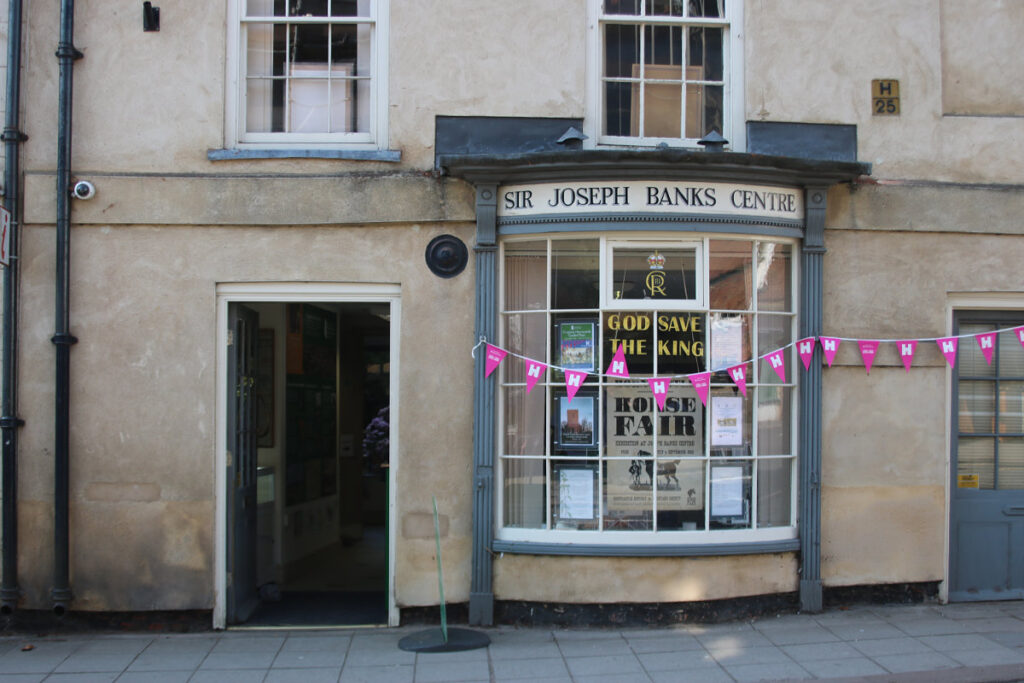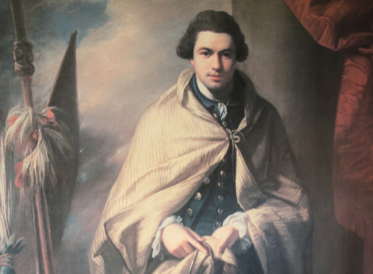Joseph Banks 1743-1820
by Dr Robert Tansey F.L.S., M.B.N.A.
Sir Joseph Banks was the famous plant explorer who accompanied Captain Cook on the ‘Endeavour’ in the 1700s whilst he was navigating the world.
I had the pleasure of visiting a small museum dedicated to Joseph Banks and his works in the town of Horncastle in Lincolnshire. It was based in a 17th century house. The locality has changed little since those times. It’s a nice place to visit when passing through or holidaying in the area. It’s known as the gateway to the Lincolnshire Wolds.
Joseph Banks was born in 1743 and died in 1820. The museum houses in its courtyard garden over seventy species of plants, some of which were collected on his voyage on the Endeavour in 1769-71.
The museum is the home of a number of plant specimens, drawings and other collections. Many volunteers help run the museum which is also home to the local History and Archaeological Society. There are a number of roman and other artifacts on show. The museum is situated in Bridge Street, postcode: LN9 5HZ.

Joseph Banks was a wealthy young man having inherited land and property from his father William Banks, a wealthy Lincolnshire, county squire. He took a great interest in local issues and was the High Sheriff if Lincolnshire in 1794. He had a particular interest in local agriculture, the wool industry in particular. He was much involved in the establishment of Kew Gardens. Many species of plants he collected ended up there. He was a founding member of the Linnean Society.
Although being born in London he spent most of his younger years exploring the Lincolnshire countryside where he developed an interest in nature, history, and botany. He was sent to Oxford to be educated where he studied natural history. He left Oxford in 1764 without sitting for a degree. At 21 he inherited Revesby Abbey and its estates. He became an advisor to George III thus involved in Kew Gardens.

He joined Captain Cook on the Endeavour between 1768 and 1771. Banks was wealthy enough to fund several natural history experts to join him. Cook was surveying the coastlines as they travelled around the globe. Banks had many advantages over Darwin who had only limited help in his quest when on board the Beagle. When Banks returned home in 1771 he was treated as a hero, and his massive plant collection was welcomed by the top scientists of the day. In 1779 he moved to 32 Soho Square, in London. He shared his house with his wife Dorothea Hugessen and his sister Sophia Banks. He continued to entertain his scientist friends there, but also bought another house Spring Grove, London Road, Isleworth, where he created a botanical gardens, containing some of his huge plant collection.
Whilst based in London he still spent time on his estate in Lincolnshire.
He was indeed a very wealthy man who was able to undertake his love of plants to the extreme. Charles Darwin too was wealthy but his wealth was tiny in comparison.
